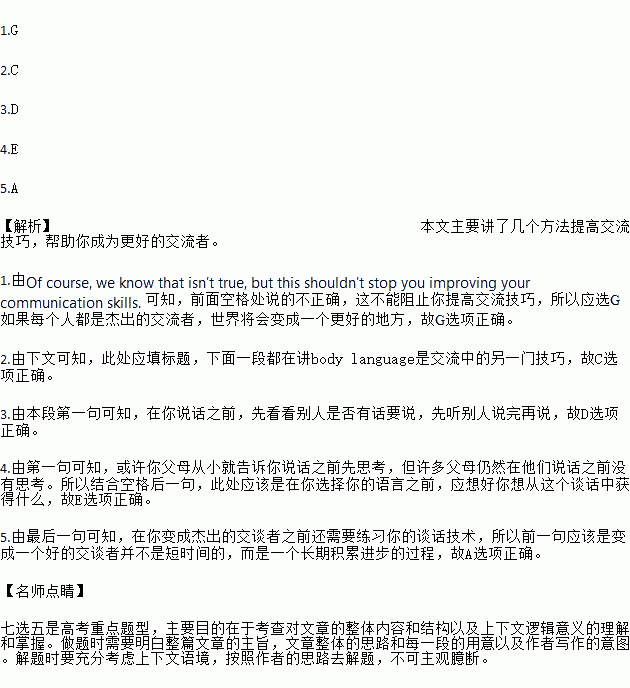题目内容
Everyone can benefit from better communication. 1.Of course, we know that isn’t true, but this shouldn’t stop you improving your communication skills. Here are a few tips to help you become a better communicator.
2.
Verbal (口头的) language is only one part of the communication — body language is another. If you ever wanted to know how to tell if someone is lying, body language is the answer. Your body language tells other people what you aren’t verbally saying, such as if you are anxious, confident, confused, angry or any other type of emotion or state of mind. If you become great at reading body language, it will help you become a better communicator.
Listen to others
Before you ever begin to speak, take a minute to see if anyone else has something to say. 3. Listening to others has many benefits, such as allowing you to learn new things or get information that you may later need.
Think before you speak
Your parents probably told you this as a child, but many people still do not take a moment to think about the words they are about to say. 4. There is a time and place for all words and tones of voice.
5. You will have to practice your communication skills before you can ever become an excellent communicator.
A. To become a better communicator is not an overnight thing.
B. Singing a song for them is good.
C. Become fluent in body language.
D. Don’t try to make the conversation go your way.
E. You should decide what you want to get in a conversation before you choose your words.
F. If you are too anxious, you can’t look for the right body language to use in communication.
G. In fact, if everybody were excellent communicators, the world would be a much better place.
| A. | liberal | B. | literary | C. | innocent | D. | impressive |
一You ______________ too long,Dear.Go out and take a break.( )
| A. | are reading | B. | had read | ||
| C. | have been reading | D. | read |
-Oh,really?I _____ it at all.( )
| A. | didn't realize | B. | don't realize | ||
| C. | haven't realized | D. | hadn't realized |

